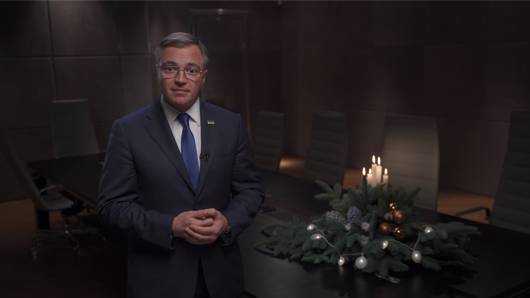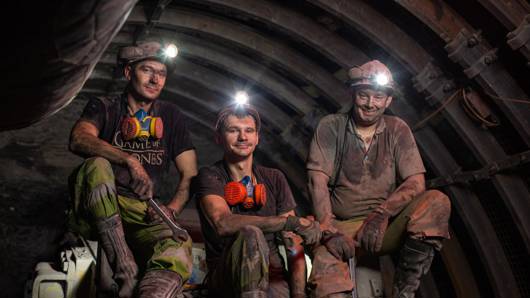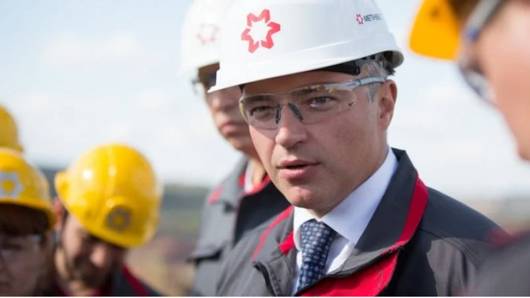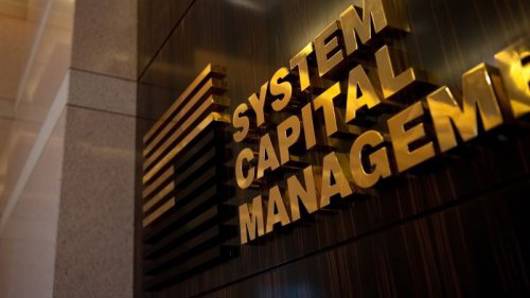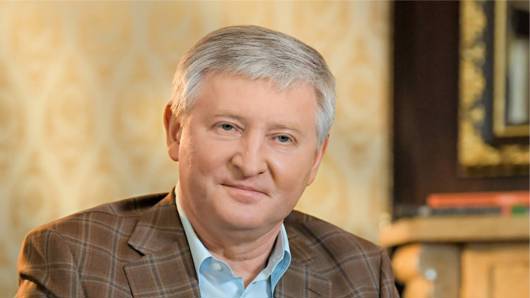In an extended interview for The FAQ Talks, Metinvest Group’s CEO, Yuriy Ryzhenkov, spoke about the main aspects of life for Ukraine’s largest private company and the transformation of its business in wartime.
Among other topics, the Group's CEO talked about the key role of employees and shared the story of the most difficult decisions he has had to make since the beginning of the full-scale invasion, the story of losses and of support for employees returning from the front line:
— I believe that today Metinvest is, first of all, a pillar of our country. Both a financial pillar and the country’s main helper on our way to victory. Who is supporting this pillar? People themselves. Metinvest is our team, working 24/7 at our plants and in offices around the world. These are the people who make the Group what it is.
Today, our biggest challenge is how to retain the team, its best representatives, and the most motivated and talented among them. And how to preserve the businesses that we have now. We know that there is shelling every day, and that our plants have been hit.
The hardest decision was to shut down Avdiivka Coke
Avdiivka, New York and Novhorodsk are particularly in the crosshairs, and this is a big challenge for our people: first, how to make sure that people can work safely at our plants. Even today, under shelling, people go to work every day; they work even when an air raid siren sounds. There are some workplaces where people cannot go to a shelter. They must remain at their workplace because a process is continuous and interrupting it can be more dangerous than an enemy attack.
Second, how to preserve assets, to make sure that even after a missile or a ‘shahed’ hits our plants, they are not seriously damaged.
— What were the most difficult decisions you had to take over the past year?
— The hardest decision was to shut down Avdiivka Coke. We fought hard for it in 2014, 2015 and 2016, during the shelling, when the power was cut off. Later, a gas pipeline was built in Avdiivka together with a state-owned company, and we managed to keep the coke plant in operation back then. However, in March 2022, we had to shut it down completely because the gas pipeline was damaged, the electricity was cut off, and a large number of people were killed. So, we decided then that we needed to shut down the plant. Unfortunately, when a coke plant is shut down, there is very little chance of getting it back up and running. We will certainly revitalise what we can, but it will never be the giant it was
And that was the hardest part because the coke plant is Avdiivka’s largest enterprise. That is, people lost their jobs in a moment. We had no other option, and this was a very sad decision. There were other problems that were less dependent on us. For one, Mariupol, when we had to end our relationship with workers who remained in the occupied city. There were also shutdowns at mining and processing plants for some time in the second half of last year, but it was a little bit easier there, as we retained the teams and were able to restart the plants at the end of last year. Even now, the mining and processing plants are only 35-40% utilised, but they are running.
— Operating enterprises is primarily about supporting people, paying salaries and taxes. This is the main thing, and you are doing this diligently. What else are you doing to support Ukraine’s economy?
— We have been providing humanitarian assistance since the first day of the invasion. To date, Metinvest has spent almost UAH 2 billion on humanitarian projects. Second, there is our military assistance. In total, we have already spent UAH 3.5-4.0 billion on humanitarian and military aid.
— Just as the country is suffering from the war, Metinvest also has seen people killed and wounded. How many have there been, and how has the Group been helping them and other employees?
— Unfortunately, more than 1,500 of our employees or their family members have been killed or wounded in this war. This includes losses among both the military – conscripted employees – and civilians. More than 8,000 of our employees are currently fighting in the ranks of the Ukrainian defence forces. Regrettably, we have lost more than 200 people and more than 500 have been wounded.
As for what we have been doing to help the families who have evacuated from the sites of fierce fighting, we have looked for housing for them and provided them with the opportunity to stay in health resorts or retreats for a while. Then we have tried to find them jobs so that they could return to normal life. As for our conscripted employees, we have done our best to equip them. This includes providing a helmet, bulletproof vest and possibly tactical clothing. We are trying to protect them as much as possible.
More than 1,500 of Metinvest's employees or their family members have been killed or wounded in this war
— This means that about 10% of Metinvest’s employees have been conscripted..
— More than 10%; it is 15%. If we are talking about 60,000 active employees at the Group today. Eight thousand is a lot. In fact, it’s every sixth.
— To what extent can Metinvest cope today with the fact that the Group has a great need for highly skilled professionals in certain occupations, and on the other hand, they have to defend the country in the ranks of the Armed Forces of Ukraine
— The government understands this situation. That’s why there is a law on the exemption of people employed in critical industries, and our industry is a strategically critical industry for the country. As such, we can book people who are most needed to keep our manufacturing running. And I always tell our guys at the plants that the war is going on everywhere: both in the trenches on the front line and at the plants. Our victory also depends on how the plant operates and how efficiently it produces armour steel, for one. So, they are soldiers just like those who are fighting in the ranks of the Ukrainian Armed Forces.
A country is only as strong as its home front. And all these people working at our plant are Ukraine’s reliable home front, which, among other things, is bringing victory closer
The people working at our plants are Ukraine’s dependable home front, and they, among other things, are bringing victory closer.
— You said that Avdiivka was affected, and a difficult decision was made to shut down the plant and support the employees, just like evacuees from Mariupol. How is their integration going at the plants today?
— To date, nearly 5,000 of our employees from these cities have applied to continue working for the Group, but only 1,500 have been employed so far. Others are taking courses to either change their occupation or upgrade their skills for new jobs. From there on, the integration is quite fast. After all, all these people – steelworkers and miners – have worked together, and they know the equipment and facilities, so they adapt quickly enough in the workplace
Many of them are waiting to return home. I know a lot of people who, for example, came from Mariupol to work at Zaporizhstal or Kamet Steel. They have good jobs but dream of returning to Mariupol
— The second issue of reintegration is the return to normal life for those who are currently serving in the military: veterans and the wounded who need rehabilitation. What is the Group doing in this regard
— We have several ongoing initiatives in this area. The biggest one is the Heart of Azovstal project launched by our shareholder, Rinat Akhmetov. It is aimed at supporting the Mariupol defenders who protected the city at the beginning of the full-scale invasion and then held out inside the Azovstal fortress and their families. Our employees were among them. Some of them were or still are in captivity. We have a multi-faceted assistance programme for them and their families.
— How easy will it be for your conscripted employees to return to the shop floor?
— War traumatises people no matter what we do, so it is always difficult to return to normal life. We have the Saving Lives initiative, established by the Rinat Akhmetov Foundation and Metinvest, through which we are assisting all our other defenders. We are helping with prosthetics and psychological rehabilitation. And these are the two most important things. After all, you can provide a job, find housing, all such things can be done. It’s pretty straightforward. All it takes is money. However, to undergo psychological rehabilitation, you need psychologists who can bring this person out of the state that the war has put them in, or you need someone who can properly design a prosthesis and then teach them how to use it.
— At the beginning of the full-scale invasion, the Group did not stop paying salaries as a matter of principle. What is the situation like today? What is Metinvest doing to increase the earnings of its employees amid a really difficult economic situation in the country?
— First, we have so-called ‘combat allowances’ that we pay at the plants operating near the front line and where there are increased risks. We are also monitoring the labour market in Ukraine and will keep abreast of the market to revise salaries or introduce special allowances and bonuses throughout the duration of the war until the situation stabilises.
The full version of the interview is available on the official Metinvest Group YouTube channel:
Read about the current situation at Metinvest Group's enterprises and in Ukraine in a special longread. Information is updated 24/7. Bookmark it and share it with your friends. Keep calm and trust only official sources of information.






